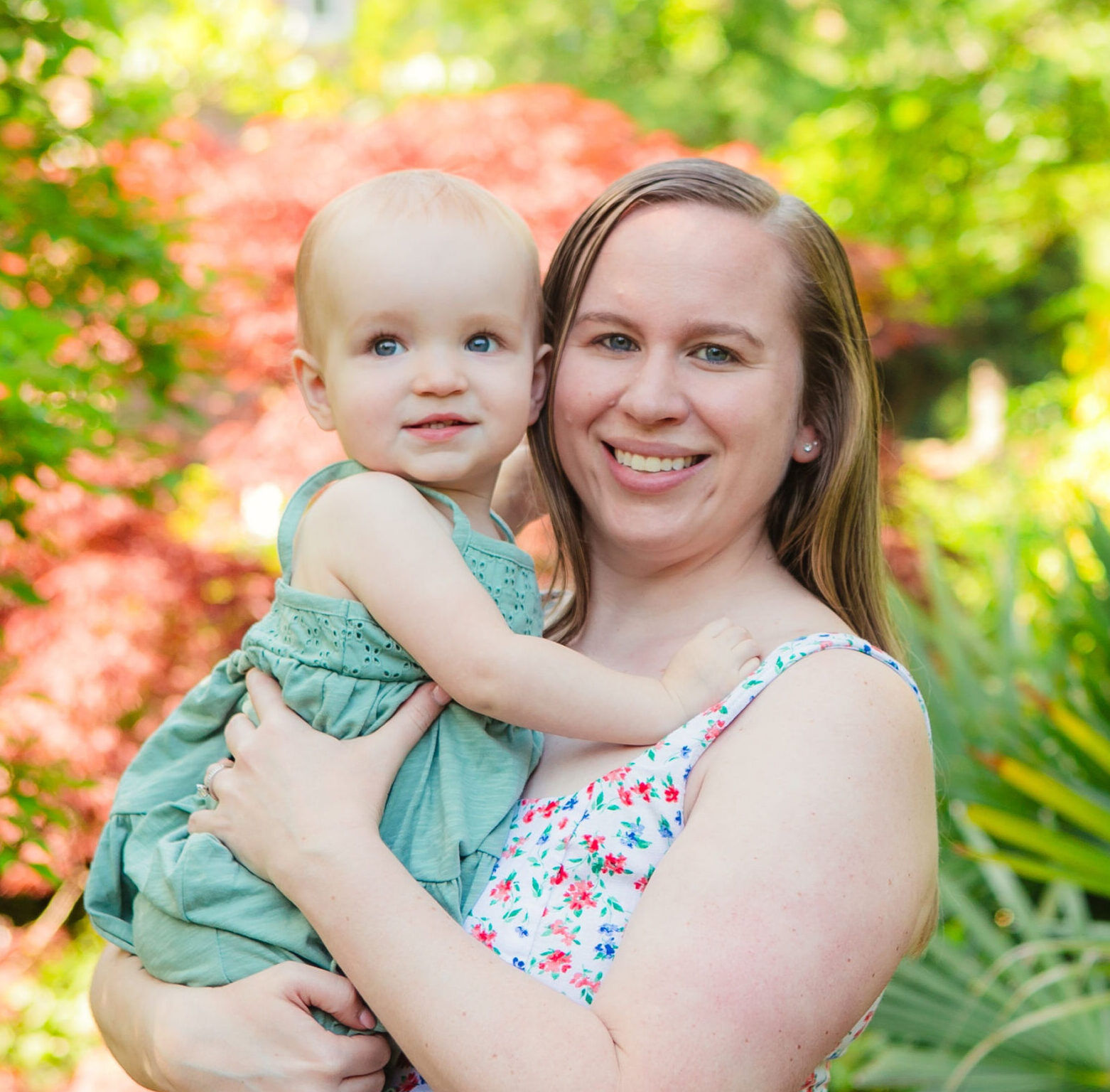Self Compassion for Moms: What, Why, and How

By Erin Jones, LCMHC
We’ve probably all experienced it before: Mom guilt. The added pressures of parenthood from both internal and external factors can make us feel more guilty and a little extra hard on ourselves sometimes.
If you’re like me, you’ve also heard many people say that you “should be kinder towards yourself,” though it can be hard to really figure out how to do so. That’s where self-compassion comes in.
Below is some information on what self-compassion is, why it’s recommended for parents, and how to use it.
Self-compassion is simply speaking to ourselves with the same kindness and consideration that we would to others.
Erin Jones
What Is Self-Compassion and Why Should We Practice It?
It is common to think that avoiding being tough on yourself can negatively impact things like productivity. However, self-compassion tends to result in the opposite: people who practice regular self-compassion skills tend to practice more self-care, have greater productivity, resiliency, and many other benefits.
Self-compassion skills work can also benefit certain self-growth journeys, such as mental health work. Ultimately, it tends to be helpful to practice- at least much more so than beating ourselves up.
Self-compassion is simply speaking to ourselves with the same kindness and consideration that we would to others. According to Kristin Neff and Christopher Germer (authors “The Mindful Self Compassion Workbook”), self-compassion has 3 main components:
- Mindfulness: Being self-compassionate requires a mindful approach- stepping back and observing our experiences from a non-judgemental perspective. We want to acknowledge when we’re having a difficult time rather than getting carried away by unhelpful thinking.
- Common Humanity: Though “Mom Guilt” and any other difficult emotions can feel isolating, we are actually having universal, human experiences. Reflecting on the fact that we are all human and not alone in our experiences can help us move towards self-compassionate language.
- Loving-Kindness: Using kind, supportive language with ourselves rather than self-judgement. You want to practice speaking to yourself as if you’re speaking to a friend.

How Can I Practice Self-Compassion?
Neff and Germer’s 3 components of self-compassion (above) can be used to structure compassionate language in the Self Compassion Break:
1. Mindfulness: “This is a moment of suffering” or “This is hard”
2. Common Humanity: “I’m not alone” or “Everyone struggles sometimes”
3. Loving Kindness: “May I be patient” or “I love you” or anything you’d like to hear- Think about encouraging yourself as if you are becoming your own friend.
More information on the self-compassion break can be found here.
Below are some additional tips for developing and implementing your self-compassion practice:
- Become Aware of Opportunities to Practice Self-Compassion
Changing a behavior or starting a new one requires catching the opportunities to practice. This relates to the mindfulness component of self-compassion. To become more aware, you’ll want to be on the lookout for times in which you can benefit from being more compassionate with yourself- Are there certain situations or times in the day when you can experience more self-judgement? Certain feelings, such as guilt? When making mistakes? Keeping a journal or log of difficulty situations and how you responded can help you find more opportunities to practice your self-compassion.
- Set time for formal and informal practice
The self-compassion break (above) can be used as a writing exercise in a journal. Planning brief periods of time to work on this can help you find your style of compassionate language- and help your brain remember it when you need it most! You can also use the self-compassion break more informally throughout the day or week, as you practice using your loving-kindness language in the moment.
- Incorporate your children!
I think that most of us parents feel motivated by our children, as we want to model helpful behaviors for them. When it comes to self-compassion, we can involve our children in developing self-compassionate language with us, or simply speak it outloud in front of them. For example, “Mom is having a difficult moment right now. Everyone makes mistakes sometimes- May I be patient with myself” is going to sound much better for both you and your children then “Ugh, not again! I’m such an idiot!”
Keep in mind that practicing self-compassion can be difficult, and we also need to be compassionate with ourselves throughout the process.
References & Resources:
Below are several resources including websites and workbooks if you’d like to learn more and continue your self-compassion journey:
About the Erin Jones, LCMHC. Erin is a Licensed Clinical Mental Health Counselor (LCMHC) with over 5 years of experience providing evidence-based practice counseling services for individuals with Obsessive Compulsive Disorder (OCD) and related diagnoses. She works at Bull City Anxiety and OCD Treatment Center, where she sees individual clients, manages an intensive Exposure and Response Prevention (ERP) program, and runs some groups. She is especially passionate about the self-compassion group for Moms with OCD.
Erin is hosting a Moms with OCD starting 4/30. Click here for more information.
Spread the word
Medical Disclaimer: All content found on the HER Health Collective Website was created for informational purposes only and are the opinions of the HER Health Collective experts and professional contributors. The Content is not intended to be a substitute for professional medical advice, diagnosis, or treatment. Always seek the advice of your physician or other qualified health providers with any questions you may have regarding a medical condition. Never disregard professional medical advice or delay in seeking it because of something you have read on this Website. If you think you may have a medical emergency, call your doctor, go to the emergency department, or call 911 immediately.

